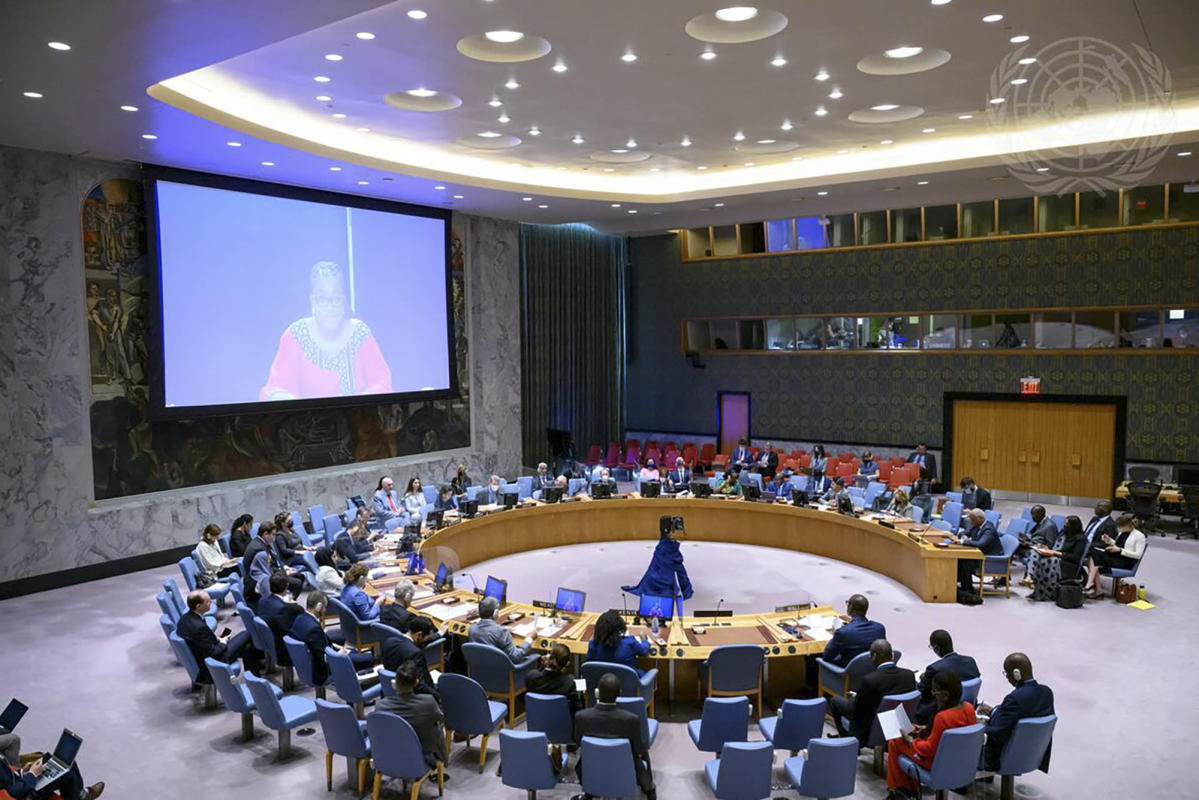
UNITED NATIONS (AP) — Tensions between Russia and the West are aggravating talks about the future of one of the United Nations’ biggest and most perilous peacekeeping operations, the force sent to help Mali resist a decade-long Islamic extremist insurgency.
The U.N.’s mission in the West African nation is up for renewal this month, at a volatile time when extremist attacks are intensifying. Three U.N. peacekeepers have been killed this month alone. Mali’s economy is choking on sanctions imposed by neighboring countries after its military rulers postponed a promised election. France and the European Union are ending their own military operations in Mali amid souring relations with the governing junta.
U.N. Security Council members widely agree the peacekeeping mission, known as MINUSMA, needs to continue. But a council debate this week was laced with friction over France’s future role in Mali and the presence of Russian military contractors.
“The situation has become very complex for negotiations,” said Rama Yade, senior director of the Africa Center at the Atlantic Council, a Washington-based think tank.
“The international context has a role, and Mali is part of the Russian game on the international stage,” she said.
The peacekeeping mission began in 2013, after France led a military intervention to oust extremist rebels who had taken over cities and major towns in northern Mali the year before. MINUSMA now counts roughly 12,000 troops, plus about 2,000 police and other officers. More than 270 peacekeepers havedied.
France is leading negotiations on extending the mission’s mandate and is proposing to continue providing French aerial support. The U.N.’s top official for Mali, El-Ghassim Wane, said the force particularly needs the capabilities of attack helicopters.
But Mali strongly objects to a continued French air presence.
“We would call, therefore, for respect for our country’s sovereignty,” Foreign Minister Abdoulaye Diop told the council Monday.
Mali asked France, its onetime colonial ruler, for military help in 2013. The French military was credited with helping to boot the insurgents out of Timbuktu and other northern centers, but they regrouped elsewhere, began attacking the Malian army and its allies and pushed farther south. The government now controls only 10% of the north and 21% of the central region, according to a U.N. report this month.
Patience with the French military presence is waning, though, especially as extremist violence mounts. There have been a series of anti-French demonstrations in the capital, which some observers suggest have been promoted by the government and a Russian mercenary outfit, the Wagner Group.
Mali has grown closer to Russia in recent years as Moscow has looked to build alliances and gain sway in Africa — and both countries are at odds with the West. High-ranking Malian and Russian officials have been hit with European Union sanctions, sparked by Russia’s actions in Ukraine since 2014 and by Mali’s failure to hold elections that had been pledged for this past February.
Against that backdrop, Security Council members squared off over the Wagner Group’s presence in Mali. The Kremlin denies any connection to the company. But Western analysts say it’s a tool of Russian President Vladimir Putin’s campaign to gain influence in Africa.
The Wagner Group has committed serious human rights and international humanitarian law violations, according to allegations by the E.U. and human rights organizations. In Mali, Human Rights Watch has accused Russian fighters and Mali’s army of killing hundreds of mostly civilian men in the town of Moura; Mali said those killed were “terrorists.” The U.N. peacekeeping force is investigating, as is the Malian government.
The recent U.N. report on Mali remarked on “a significant surge” in reports of abuses committed by extremists and Malian forces, sometimes accompanied by “foreign security personnel.” It didn’t name names, but British deputy U.N. Ambassador James Kariuki said council members “are under no illusions – this is the Russian-backed Wagner Group.”
Mali says otherwise. While officials have said Russian soldiers are training the Malian military as part of a longstanding security partnership between the two governments, Diop insisted to the Security Council that “we don’t know anything about Wagner.”
However, Russian Foreign Minister Sergey Lavrov said in a TV interview in May that the Wagner Group was in Mali “on a commercial basis.”
Russian deputy U.N. Ambassador Anna Evstigneeva told the Security Council that African countries have every right to engage soldiers-for-hire. And she suggested they have every reason to, saying Mali’s security “continues to unravel” despite European military endeavors.
She blasted Western unease about Russia’s tightening ties to Mali as “neocolonialist approaches and double standards.”
Secretary-General Antonio Guterres plans a six-month review to consider ways to retool MINUSMA.
To Sadya Touré, a writer and the founder of a women’s organization called Mali Musso, told the council her country “should not be a battlefield between major powers.”
“People are the ones who are suffering the consequences of these tensions.”




